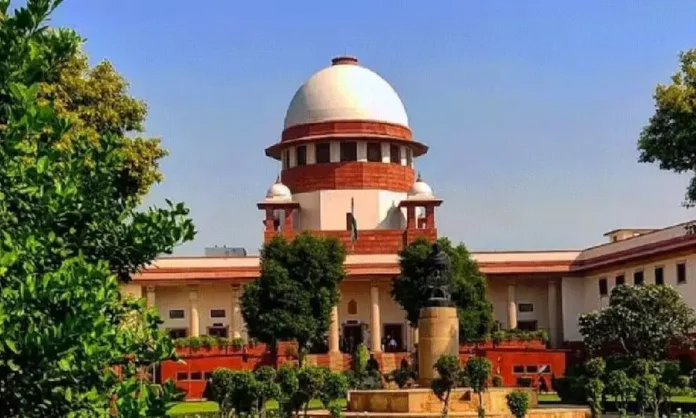The Supreme Court of India on Thursday issued a directive restraining all courts across the country from passing any interim or final orders, including survey orders, in pending suits concerning existing religious structures. The court also barred the registration of fresh suits over such claims while it hears petitions challenging the Places of Worship (Special Provisions) Act, 1991.
Key Highlights:
- Supreme Court Directive:
A bench comprising Chief Justice of India Sanjiv Khanna, and Justices PV Sanjay Kumar and KV Viswanathan ruled:- Pending suits related to religious structures will not receive effective interim or final orders until further notice.
- New suits can be filed but will not be registered, and proceedings will not commence during the pendency of the matter in the apex court.
- Current Status:
- The apex court was informed that 18 suits are currently pending nationwide against 10 mosques or shrines.
- Centre’s Affidavit:
- The court granted the Central Government four weeks to file an affidavit addressing the challenges posed to the 1991 Act.
The Places of Worship (Special Provisions) Act, 1991
The Act, enacted in 1991, aims to:
- Prohibit the conversion of any place of worship.
- Maintain the religious character of places of worship as they existed on August 15, 1947.
- Exclude disputes concerning the Ram Janmabhoomi-Babri Masjid site, which was under litigation when the law was enacted.
Challenges to the Act
Petitions against the Act argue that:
- It infringes on the rights of Hindus, Jains, Buddhists, and Sikhs to restore and manage their places of worship under Articles 25 and 26 of the Constitution.
- It violates the principle of secularism and the rule of law, which are part of the Constitution’s basic structure.
- Sections 2, 3, and 4 of the Act deprive communities of the right to judicial remedy, particularly regarding reclaiming places of worship encroached upon historically.
- It creates an arbitrary retrospective cutoff date (August 15, 1947) and abates proceedings on disputes.
Interventions and Responses
- Several organizations, including Jamiat Ulama-i-Hind, the India Muslim Personal Law Board, and committees managing mosques such as the Gyanvapi complex and Shahi Idgah mosque, have filed applications opposing the petitions. They argue that entertaining these challenges could lead to a flood of litigation across the country.
Historical Context and Broader Implications
The Act was passed in 1991 to promote communal harmony and maintain the status quo of religious sites. Critics, however, argue that it suppresses claims related to historical grievances and encroachments.
The apex court’s directive underscores the sensitivity and potential nationwide implications of the case, as it balances constitutional rights, historical grievances, and the principles of secularism.


